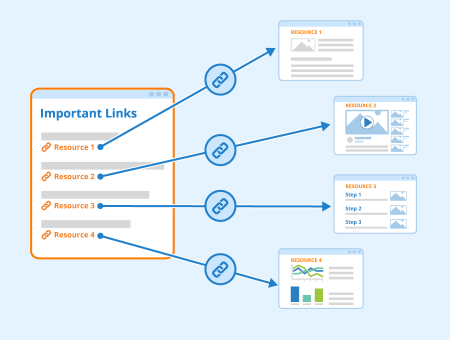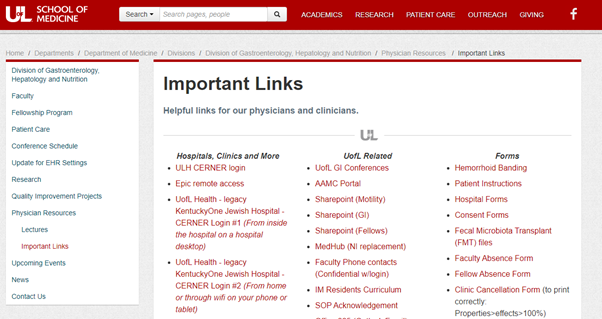What is a link hub?

A link hub is a web page or website that contains a range of links to relevant internal or external pages, making it easy for users to find relevant information on a topic. A resources page on a blog that links to various pages/sites where visitors can find more information on a relevant topic is an example of a link hub.
Link hubs can add value to users by providing a curated list of important resources but can also be part of a black hat link scheme.
What link hubs are used for
Link hubs work by providing users with links to valuable information on a given topic. Usually, they are used by sites to add value to readers and increase exposure to important supporting organizations, companies and/or individuals.
Since backlinks from relevant pages are important for SEO, links from link hubs can be an important part of off-page SEO, especially when focusing on topical relevance. However, there are many link hubs that are used for selling links or link spam, often linked to a bad neighborhood. This leads many SEOs to be extra careful when looking to build links from link hubs.
History of link hubs
The concept of link hubs has been integral to the web since its inception. In the early days of the internet, link hubs were often referred to as web directories or link lists. They served as the primary means for users to discover new websites and content.
As search engines like Yahoo, Altavista and Google (among many others) were launched and entered the mainstream, the importance of link hubs slowly shifted. While they are still used as a means to discover content today, they are mainly used for finding important references and web pages on highly specific topics as opposed to being used for general web searching. Over time, a clear distinction emerged between those that add genuine value and those created for manipulative SEO practices.

An example of a white hat link hub on University of Louisville School of Medicine’s website
Black hat or white hat?
White hat link hubs are generally found as resource pages on real websites, although there are also link hub sites built with the sole purpose of helping visitors find relevant information on a topic.
The relevance of the links on the page, the quality of the sites that are linked to, and the link profile of the page and overall site are all factors that influence whether a link hub is considered white hat or whether it’s acting against search engine guidelines.
Link hubs with a lot of irrelevant links, that sell links, or those that take part in link schemes are generally considered as black hat and have a high probability of being penalized by search engines.
Indicators of black hat link hubs
There are some clear indications that can be used to identify black hat link hubs. These include:
- Irrelevant Links: A link hub that contains many links unrelated to the hub’s main topic is often a red flag. This lack of topical relevance is a common trait of black hat link hubs, which prioritize quantity over quality.
- Link Selling: If a link hub openly advertises the sale of links or has a history of participating in paid link schemes, it’s likely operating against search engine guidelines.
- Spammy Link Profile: A link hub with a high volume of low-quality or spammy outbound links, especially those leading to dubious or unrelated sites, is indicative of black hat practices.
- Over-Optimized Anchor Text: The excessive use of keyword-rich anchor text in links, which appears unnatural or forced, can signal a black hat link hub.
- Poor User Experience: Black hat link hubs often prioritize SEO over user experience, resulting in cluttered, difficult-to-navigate pages that offer little value to visitors.
Its relevance to SEO
Link hubs can be a good way for a site to provide extra value to users by linking to relevant resources and websites. This can also help with demonstrating knowledge on a topic and increasing the topical relevance of a site.
Links pointing to a website from a link hub can be either beneficial or detrimental to a website, depending on the quality of the link hub. Backlinks from relevant link hubs linking to high-quality sources can be beneficial to a page’s search performance. Backlinks from link hubs with irrelevant links, or link hubs that are part of a bad neighborhood are generally bad for a website’s performance and can even result in penalties.
You can use backlink checkers (like our own backlink analysis tool) to gauge the quality of a link profile, as well as discover link hubs that already link to your most important competitors, which indicates that a link from that particular link hub could be beneficial.
Related links
- https://developers.google.com/search/docs/advanced/guidelines/link-schemes
- https://www.socialmediatoday.com/news/toxic-backlinks-how-they-hurt-seo-and-how-to-get-rid-of-them/573246/
Similar articles
